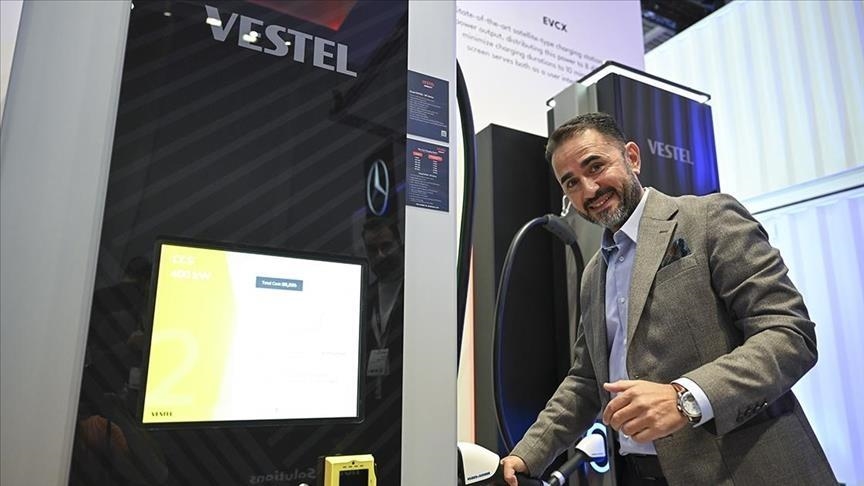WNAM REPORT: Türkiye’s leading electronic company, Vestel, wants to be one of the top three electric vehicle charge stations, especially for DC (direct current), according to CEO Ergun Guler.
He said that special products are an advantage. For instance, with electrical vehicle charging stations, if you have an AC (alternative current) station, you can charge a car in five hours. Vestel has exported them for more than five years — if you have a wall box in Germany or Spain, it is produced by Vestel, Guler told Anadolu.
“But the most important thing is where? We are a company that is very advanced in DC devices. So, the fast and ultra-fast charging devices are able to charge your car just in seven to eight minutes,” he said.
He said some companies may have a small production for that type of device but in the mass production field, there are only three companies globally and Vestel is going to be one of them.
There are mass production devices — mass production for 720-kilowatt-devices. The good news is that beginning next year, Vestel will have a 1,000-kilowatt device, he noted.
He said Vestel is developing and producing all the screens in the Turkish electrical vehicle, Togg, and is in talks with international brands to produce screens and a major airline to produce entertainment screens.
The company’s interest in the sector has extended to a 23% stake in Togg — the Turkish EV manufacturer that is headquartered in northern Kocaeli province and was founded in 2018 by a joint venture of five Turkish companies.
As the biggest television producer in Europe, Vestel wants to transfer its knowledge to another field. There are many rivals, especially from China and Germany.
Huge global shift
Vestel is an international company making exports to 163 countries, so it is very close to almost every country, Guler stressed.
It has a revenue of $3.8 billion where $2.5 billion is coming from exports, he said.
Guler added that Vestel is not only doing operations under the Vestel brand but has several brands such as licensed brands Toshiba and Sharp.
But the company now sees a huge shift to mobility. Mobility is more about electrical vehicles, electrical vehicle traffic stations and energy storage systems, he noted.
The entire $3 trillion, 150-year-old automotive industry is shifting to a connected, electric future.
The Boston Consulting Group estimates, electric vehicles (EVs) are expected to constitute 45% of new vehicle worldwide sales by 2035.
Saying that Vestel wants to utilize the benefit from this huge shift by producing in the field, he said production rules and underlying circumstances are changing.
Guler said automotive brands are also changing, while there are traditional brands such as Volkswagen and Renault, there are also new brands such as Tesla, and BYD which did not exist a couple of decades ago.
While Toyota, Volkswagen and Porsche were the top three automotive producers in terms of value, Tesla is now the number one auto manufacturer, followed by Toyota and Chinese BYD, which was not there five years ago, he noted.
“As I said, production, underlying circumstances and players are changing,” he said. “Now there we have found a place for us to be the tier one supplier of those great brands, plus to be a leading brand for electrical vehicle charging stations, plus the leading brand for energy storage systems, the question is, how and when.”
He stressed that while Vestel was exporting to Europe and Japan for more than 30 years, it had operations with a very high-quality standard.
“Vestel is going to be a player in the mobility ecosystem,” he said.
Touching on supply chain issues, he said they have become so fragile recently, and that has made friend-shoring and nearshoring concepts more important.
Friend-shoring refers to trade relations between countries with similar political, economic and cultural values while nearshoring is an approach to trade relations among neighboring or nearby countries.
Türkiye, because of a nearshoring concept, saw a huge demand from Europe, Asia and Africa, he said.
“Our plan or aim, is to bring Vestal mobility to the markets. Our target is to have an IPO above $1 billion,” he added.


